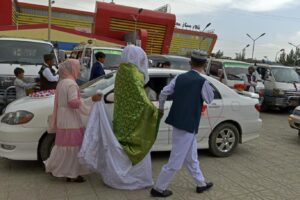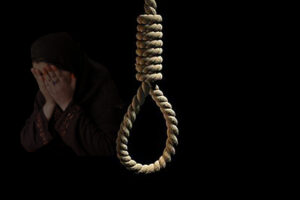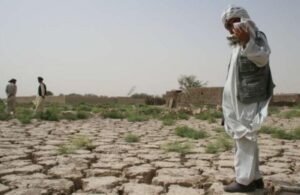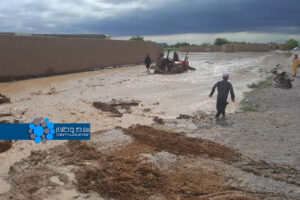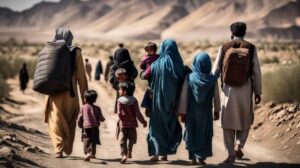KABUL (SW) – Frustration and disappoint were all over her face as she narrated the tragic tale of her irregular migration to Azerbaijan.
Prominent Afghan journalist Nazifa Rahmati, who is currently in deep depression in Azerbaijan, has graduated from Kabul University’s journalism faculty.
After graduating, Nazifa started working for a local radio station, and soon became a prominent journalist through hard work.
Nazifa eventually got into trouble when she chose a boy from another religion as her life partner as it was not tolerable for families and relatives on both sides.
Family interference in the lives of Nazifa and her husband led to her leave the country through irregular migration after her marriage in a court. But, she did not know the eventual cost of this migration.
She immigrated to Azerbaijan to live a life without the interference of her family and to lead a better and more comfortable life. But, now everything is going against her imagination.
After nearly a year and a half in the Azerbaijani capital, Baku, she has been denied work and asylum in the country, and poverty has made her life miserable.
Nazifa Rahmati, who now has a daughter named Lala, says she is thinking of returning to her home country for a better future for her daughter and is confident that with her academic credentials and work experience she can get a good job in the country.
Meanwhile, Sayed Shah Hussain Hunaryar, coordinator of the Migration Information Center, said it would be beneficial for host countries to adopt stricter rules to reduce the level of irregular migration.
Figures provided by Hades Pardes, public relations officer at the International Organization for Migration (IOM), suggest that the European countries voluntarily repatriated some 180 Afghans in the past four months alone.
For those who return voluntarily, Pardes said there are short and long-term support programs in sight. He said it was important to provide employment opportunities for young people in the country and to create public awareness programs on the negative consequences and challenges of irregular migration in order to prevent illegal migration.
With that in mind, Nazifa thinks about coming back, starting from scratch, and leaving behind a country where she can do nothing on its own. The thoughts about treacherous journey back home, however, continue to haunt her.
ENDS

